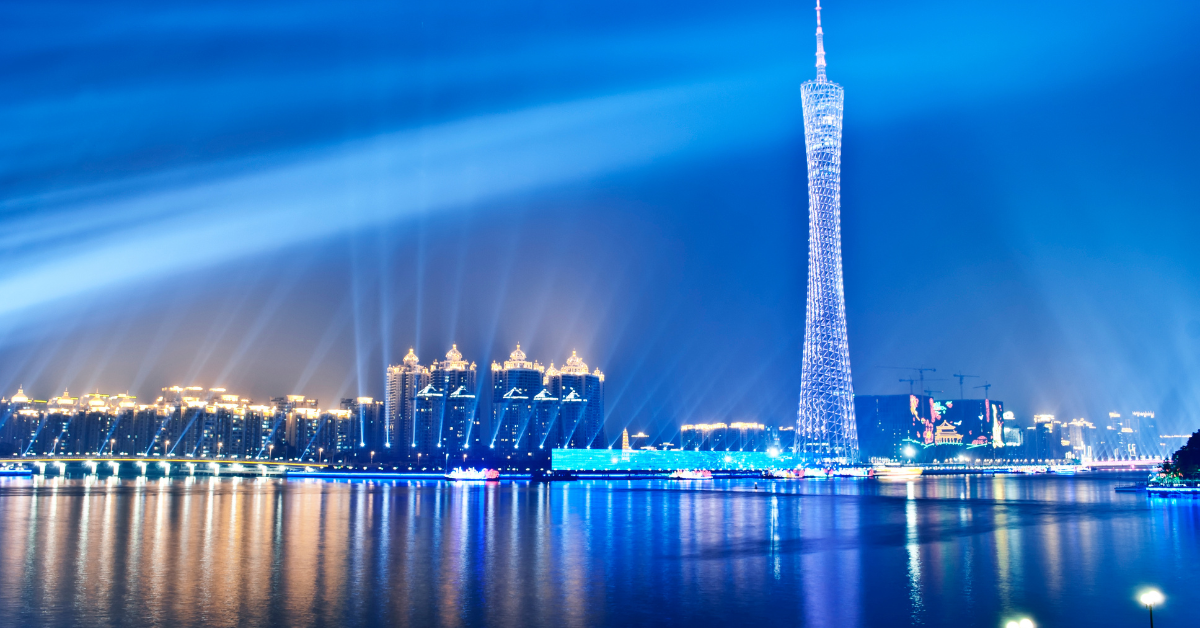Guangzhou, one of China’s leading cities in the south, is seen by Japanese people as both an economic powerhouse and a city rich in culture and history. For Japanese business professionals, tourists, and expatriates alike, Guangzhou offers opportunities, convenience, and cultural richness. This article highlights how Japanese people perceive Guangzhou in terms of economy, history, culture, lifestyle, and sports.
Guangzhou as an Economic City
Guangzhou is perceived by the Japanese primarily as a business city, the economic center of southern China. The Canton Fair, known globally, is a major event for Japanese businesspeople as well.
| Aspect | Japanese Impression | Background |
|---|---|---|
| Economy | Central city of southern China | Canton Fair, global trade |
| Industry | Manufacturing and logistics hub | Japanese firms producing cars, electronics |
| Business Environment | High growth potential | Concentration of foreign companies, policy support |
Guangzhou also plays a significant role in China’s Belt and Road Initiative as a logistics hub. Because of this, Japanese businesspeople recognize Guangzhou as a gateway to the global market.
Guangzhou as a City of History and Tradition
Guangzhou was the starting point of the Maritime Silk Road, thriving as a trading port since ancient times. For Japanese people, Guangzhou is strongly associated with the image of a historic international city.
Additionally, Guangzhou’s culinary heritage is indispensable. The saying “Food is in Guangzhou” highlights the city’s status as the center of Cantonese cuisine, which includes dim sum and seafood that are familiar and popular among Japanese people.
| Perspective | Japanese Impression | Example |
|---|---|---|
| History | International trading city | Maritime Silk Road, ancient port town |
| Architecture | Harmony of tradition and modernity | Qing-era buildings and skyscrapers |
| Food Culture | Culinary capital of China | Dim sum, seafood, medicinal cuisine |
Thus, Guangzhou is seen as a city where history and food culture blend seamlessly.
Cultural and Living Environment
For Japanese expatriates and students, Guangzhou is often considered a comfortable international city to live in. Japanese supermarkets, restaurants, and schools provide a sense of reassurance.
| Aspect | Japanese Perception | Supporting Factors |
|---|---|---|
| Living Environment | Safe and convenient abroad | Japanese grocery stores, medical services |
| Education | Secure for children | Japanese schools established |
| Transportation | Highly convenient | Metro system, high-speed rail |
The city’s international diversity, with many multinational companies and foreign residents, further enhances its appeal to Japanese residents.
Guangzhou as a Tourist Destination
In terms of tourism, Guangzhou is often described as a city where modernity and tradition coexist.
The Pearl River night cruise and the Guangzhou Tower skyline showcase the city’s modern side, while attractions such as the Temple of the Six Banyan Trees and Chen Clan Ancestral Hall highlight traditional culture. Its proximity to Hong Kong and Macau also makes Guangzhou a strategic base for multi-city travel among Japanese tourists.
Guangzhou from a Sports Perspective
Sports have also shaped Japanese impressions of Guangzhou. The 2010 Asian Games firmly established the city’s image as an international sports capital.
The football club Guangzhou Evergrande is especially well known in Japan. Through matches in the AFC Champions League against Japanese clubs, Guangzhou has become recognized by Japanese fans as a city with a powerhouse football team.
| Aspect | Japanese Impression | Background |
|---|---|---|
| International Events | City of sports competitions | 2010 Asian Games |
| Football | Home of a powerhouse club | Guangzhou Evergrande |
| Energy | City with global presence | Matches against Japanese teams |
As a result, Guangzhou is perceived as an energetic city with international influence through sports.
Conclusion
Japanese perceptions of Guangzhou can be summarized into five main points:
- Its significance as an economic hub
- Its identity as a city shaped by history and trade
- Its reputation as a culinary capital
- Its status as an international and livable city
- Its vitality and global presence through sports
Guangzhou is more than just a business city. To Japanese people, it is a comprehensive international metropolis where one can experience economy, culture, history, lifestyle, and sports. For business professionals seeking opportunities, as well as for travelers seeking cultural enrichment, Guangzhou offers a wide spectrum of attractions.






